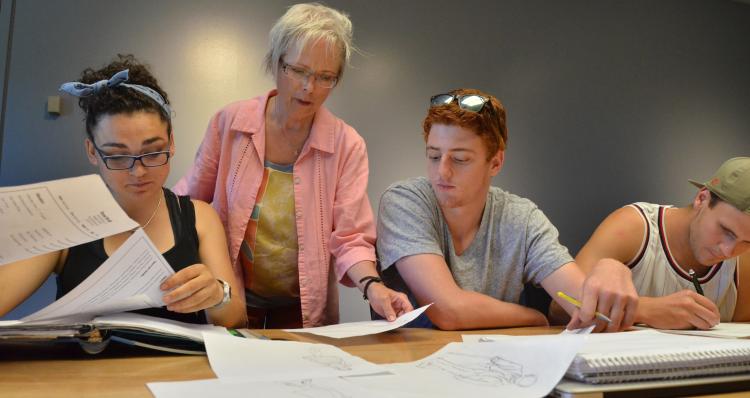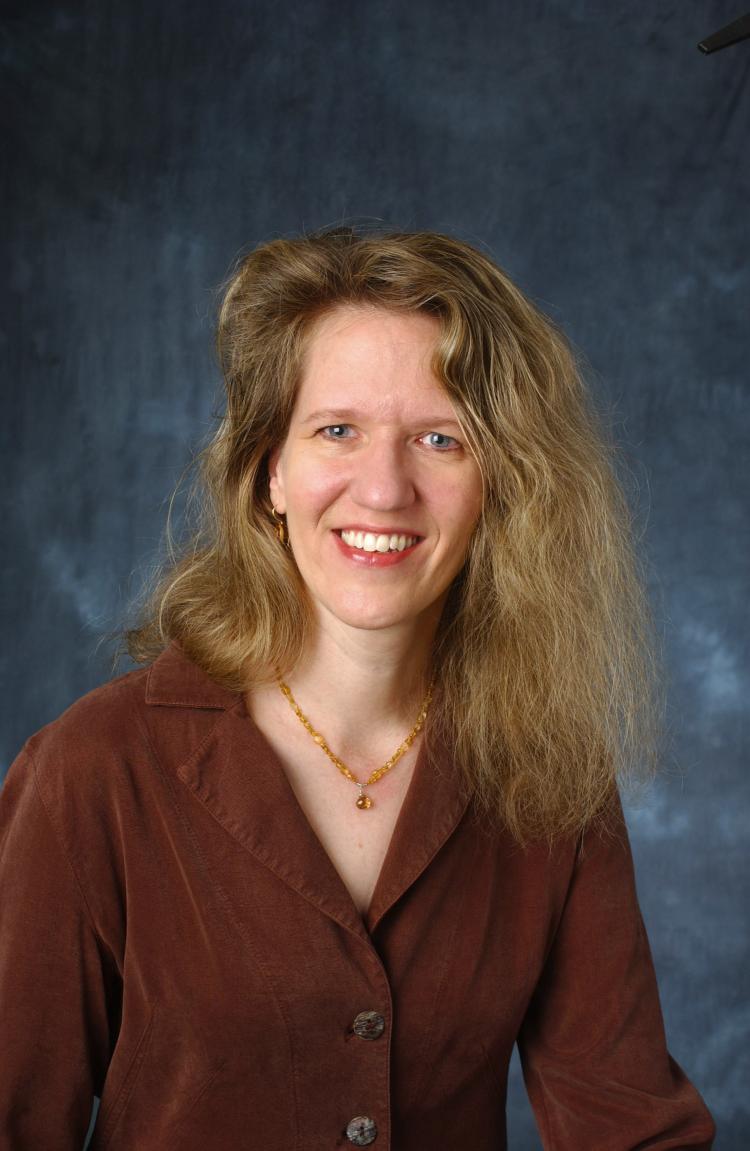Campus launches into redesigned accreditation review

The campus community is once again embarking on an accreditation review by the nonprofit Higher Learning Commission (HLC), an independent corporation founded in 1895 as one of six regional institutional accreditors in the United States.
A postsecondary institution is not recognized by the U.S. Department of Education if it is not accredited and cannot receive federal student financial aid, meaning the review is vitally important to CU Boulder’s very existence. This time around, the commission is requiring qualifying institutions to select and implement an institution-specific project. CU Boulder is engaging on a quality initiative project tied to strategic student success and retention goals.
HLC accreditation happens every 10 years and CU Boulder is in the seventh year of the current cycle, meaning efforts are ramping up to collect necessary documentation and information for the institution to maintain its accredited status beginning in 2020 and lasting through 2030.
Accreditation has changed since the last go around, said Katherine Eggert, an English professor who recently joined the team shepherding the accreditation review for the campus. In the past, the accreditation process involved a massive self-study. The documentation was reviewed by HLC and a team of external experts who came to campus to see things for themselves. This time, the self-study part is slimmed down, Eggert said.
As before, the campus will undergo an assurance review to demonstrate that it meets five overarching standards of quality, including:
- Clearly articulated mission that guides the institution’s operation
- Ethical and responsible conduct
- Delivery of high-quality education, wherever and however its offerings are delivered
- Quality educational programs, learning environments and support services, evaluated through processes designed to promote continuous improvement
- Resources, structures and processes sufficient to fulfill the institution’s mission and plan for the future
CU Boulder must in turn submit evidence showing it meets all criteria, along with federal compliance requirements. The process culminates with a peer review on the Boulder campus in 2020.
Quality initiative project: student success
The commission also created an option for campuses that qualify, allowing them to add a quality initiative project. CU Boulder is zeroing in on a project related to student success and persistence. Eggert says it’s a great opportunity to tap highly qualified evaluators to fine tune a priority initiative.

Katherine Eggert
Like many colleges, CU struggles to ensure that students stay on track and graduate on time. The campus goal is to have 80 percent of students graduate within six years. Last spring, 70 percent of students who started in 2010 graduated. CU Boulder is also closely monitoring retention rates. This fall, campus officials reported an improved retention rate for last year’s freshman class of 86.7, an all-time high for fall retention since CU Boulder starting tracking the figures in 1989.
“It’s something we want to make progress on,” said Eggert, who is working on the accreditation review with campus Accreditation Liaison Officer Bill Kaempfer, who also serves as interim dean of the Leeds School of Business, vice provost and vice chancellor of budgeting and planning; and Robert Stubbs, director of institutional research. “We do not have to finish it within a prescribed amount of time, but we do need to make progress before accreditation happens.”
Eggert’s primary role is to write a proposal “that we design and implement ourselves, as reviewed by the HLC.”
While the project is in its early stages, Eggert says CU Boulder needs better tools for figuring out what is effective in helping students finish their degrees in a timely manner.
“We have ideas about what will improve student persistence, with intellectual backing, but we need better measurements,” she said. “We want to design a toolkit of measuring tools that can be easily used by any academic unit or support program on campus to assess whether what they’re doing is helping students to continue and complete their degrees.”
What is learned throughout the process will be incorporated into academic planning on the campus. The toolkit will be piloted in select units in 2017-18. Eggert is eager to consult with faculty and staff about what they believe would be valid ways to measure the impact of various programs aimed at boosting student retention and persistence.
"I’m interested in learning surprising things about what benefits our students, what improves student learning,” Eggert said. “We know a lot. We can learn more. I think the results will highlight things we’re doing well that we don’t even know about."
Eggert is also excited to break down barriers on campus so that people from all academic and student support units can learn from one another.
"We all exist in our own little worlds. But we’re all in this together. The more we help each other the better off our students will be."
Learn more at the Higher Learning Commission website.


